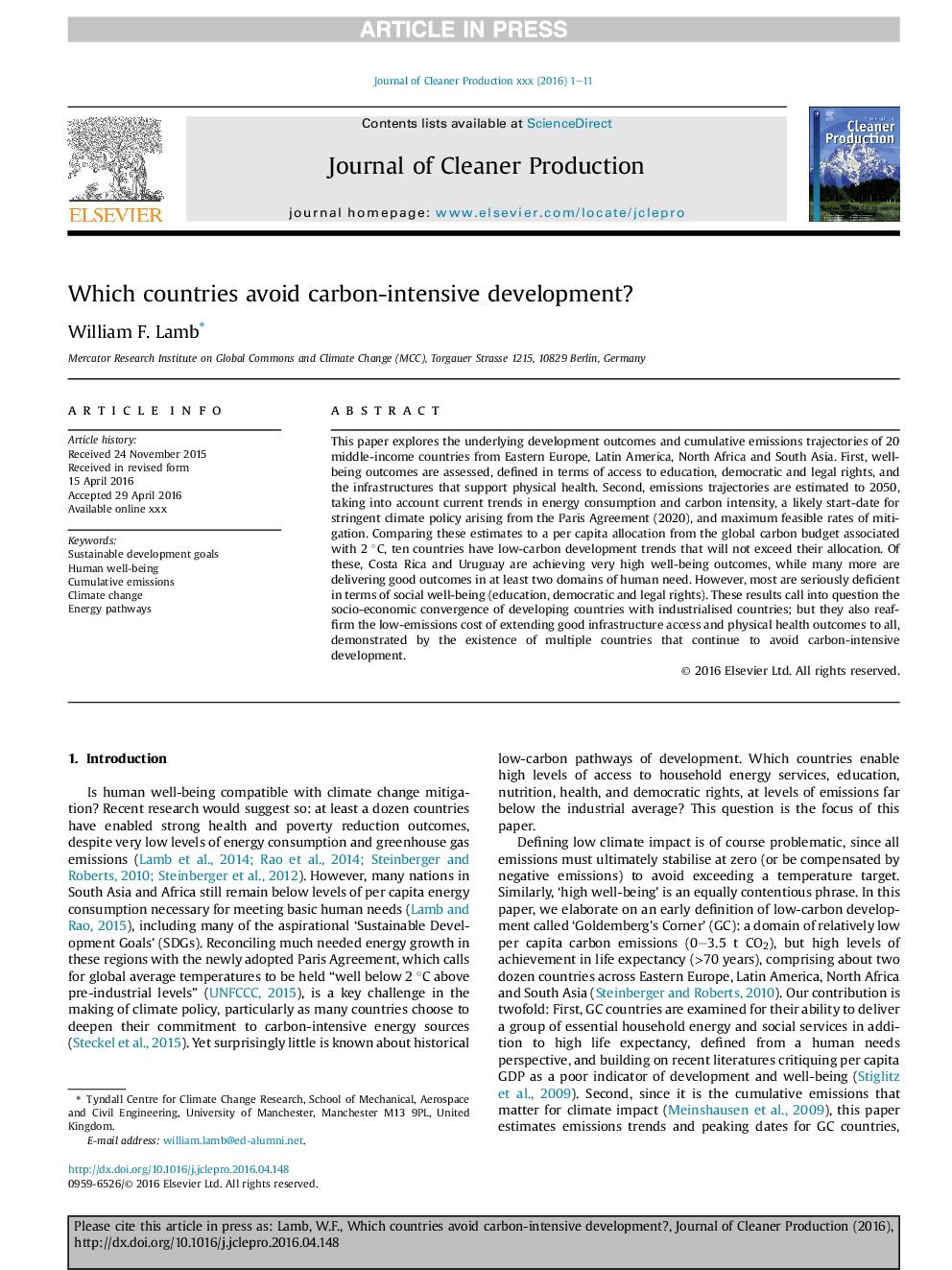| کد مقاله | کد نشریه | سال انتشار | مقاله انگلیسی | نسخه تمام متن |
|---|---|---|---|---|
| 8101675 | 1522118 | 2016 | 11 صفحه PDF | دانلود رایگان |
عنوان انگلیسی مقاله ISI
Which countries avoid carbon-intensive development?
ترجمه فارسی عنوان
کدام کشورها از پیشرفت کربن جلوگیری می کنند؟
دانلود مقاله + سفارش ترجمه
دانلود مقاله ISI انگلیسی
رایگان برای ایرانیان
کلمات کلیدی
اهداف توسعه پایدار، رفاه بشری، انتشار تجمعی، تغییر آب و هوا، مسیرهای انرژی،
موضوعات مرتبط
مهندسی و علوم پایه
مهندسی انرژی
انرژی های تجدید پذیر، توسعه پایدار و محیط زیست
چکیده انگلیسی
This paper explores the underlying development outcomes and cumulative emissions trajectories of 20 middle-income countries from Eastern Europe, Latin America, North Africa and South Asia. First, well-being outcomes are assessed, defined in terms of access to education, democratic and legal rights, and the infrastructures that support physical health. Second, emissions trajectories are estimated to 2050, taking into account current trends in energy consumption and carbon intensity, a likely start-date for stringent climate policy arising from the Paris Agreement (2020), and maximum feasible rates of mitigation. Comparing these estimates to a per capita allocation from the global carbon budget associated with 2 °C, ten countries have low-carbon development trends that will not exceed their allocation. Of these, Costa Rica and Uruguay are achieving very high well-being outcomes, while many more are delivering good outcomes in at least two domains of human need. However, most are seriously deficient in terms of social well-being (education, democratic and legal rights). These results call into question the socio-economic convergence of developing countries with industrialised countries; but they also reaffirm the low-emissions cost of extending good infrastructure access and physical health outcomes to all, demonstrated by the existence of multiple countries that continue to avoid carbon-intensive development.
ناشر
Database: Elsevier - ScienceDirect (ساینس دایرکت)
Journal: Journal of Cleaner Production - Volume 131, 10 September 2016, Pages 523-533
Journal: Journal of Cleaner Production - Volume 131, 10 September 2016, Pages 523-533
نویسندگان
William F. Lamb,
